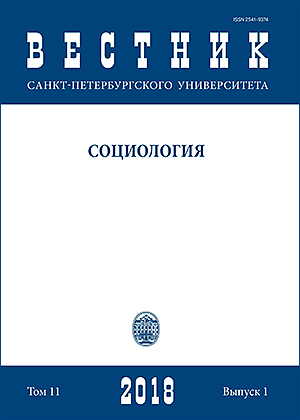Sociology of property: From the ideas of K. Marx to the St. Petersburg school of economic sociology
DOI:
https://doi.org/10.21638/11701/spbu12.2018.103Abstract
The article outlines the conceptual foundations of the sociology of property when it is institutionalized within the framework of domestic economic sociology. It is noted that Marxist sociology and political economy became the theoretical and methodological basis of this new direction of sociological science. The need for the emergence of a sociology of property was declared by the founder of the St. Petersburg school of economic sociology V. Ya. Elmeev, who developed Marx’s ideas on the social nature of property in relation to the modern level of development of social sciences, in particular, sociology. Yelmeyev’s students developed his ideas about the existence of public property relations in the social and economic system and postulated the incorrectness of posing the question either only about private property or only about public property, since both types of property at least coexist in the social system. Such coexistence and interaction determines the need for studying not only the processes that are realizing them, but also the niches that are occupied with this or that form of ownership.
Keywords:
sociology of property, the St. Petersburg school of economic sociology, public property, the socialization of property, the interaction of private and public property
Downloads
References
References
Downloads
Published
How to Cite
Issue
Section
License
Articles of "Vestnik of Saint Petersburg University. Sociology" are open access distributed under the terms of the License Agreement with Saint Petersburg State University, which permits to the authors unrestricted distribution and self-archiving free of charge.




